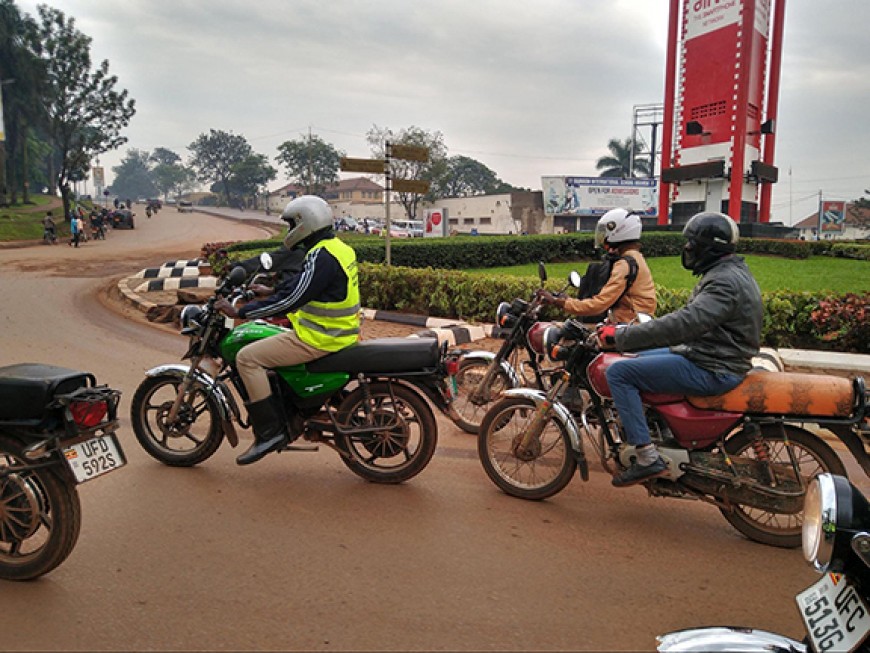
 back to all news
back to all news
Electrifying motorcycle taxis in Kampala, Uganda, shows air pollution benefits

In a new University of Michigan study, researchers set out to understand the air pollutant emissions impacts of electrifying motorcycle taxis in Kampala, Uganda. The findings indicate that electrified motorcycles can reduce emissions of global and some local air pollutants, yielding global and potentially local sustainability benefits.
Air pollutants harm the well-being of individuals and the climate. Those living in low and middle-income countries (LMICs), in particular, are dealing with poor air quality due to rapid urbanization. There are millions of motorcycles across LMICs, but little research has been done on the consequences of electrifying them. A group of researchers, led by Michael Craig, Assistant Professor in Energy Systems at the U-M School for Environment and Sustainability, set out to fill this gap.
“The transportation sector is a major emitter of global and local pollutants in LMICs, and motorcycles make up a large part of the transport sector in those countries. Electrification is a key decarbonization strategy for transport, but little research has considered how electrifying motorcycles in LMICs would yield local or global sustainability benefits. To understand how we can achieve those benefits, we teamed up with Zembo (electric motorcycle taxi company) to fill that gap,” said Craig.
In Kampala, Uganda, hundreds of thousands of motorcycles are on the roads, with tens of thousands acting as taxis, or “boda bodas.” These motorcycles contribute to dangerous air pollution levels that frequently exceed levels deemed safe for humans by the World Health Organization (WHO). In response to growing concerns about air pollution, there has been a push in sub-Saharan African cities to adopt electric motorcycles, with Rwanda even considering banning gasoline motorcycles.
In this study, U-M researchers combined real-world trip and charging data from motorcycle taxis in Kampala with computational models of the Ugandan power system. Through this empirically-driven approach, the researchers quantified emissions from conventional and electric motorcycle taxis, then compared the two to quantify electrification benefits.
The findings show that replacing traditional gas-powered motorcycles with electric ones reduces some air pollutant emissions and increases others due to the fuels used for power in Uganda. Still, electrification might achieve health benefits by moving emissions away from population centers. While the emissions impacts will vary with hydropower generation throughout the year, the study found that electrifying motorcycle taxis reduced annual emissions of carbon dioxide (CO2) by 36%, carbon monoxide (CO) by 90%, nitrogen oxide (NOx) by 58%, and hydrocarbon (HC) by 99%. Conversely, electrification increased annual emissions of sulfur oxide (SOx) emissions by 870%, particulate matter (PM10) by 109%, and particulate matter (PM2.5) by 97%.
Craig adds, “LMICs have to be part of the solution in addressing climate change. Our research indicates electrifying motorcycle taxis in Uganda can yield global climate benefits while also possibly producing local air quality benefits. Better understanding global and local benefits associated with transport electrification in Kampala and other LMICs is crucial to guide investments.”
The paper’s authors, in addition to Michael Craig, are Max Vanatta, Bhavesh Rathod, Jacob Calzavara, Thomas Courtright, Teanna Sims, Étienne Saint-Sernin, Herek Clack, and Pamela Jagger.
This work was made possible by a Graham Catalyst Grant.
More information:

